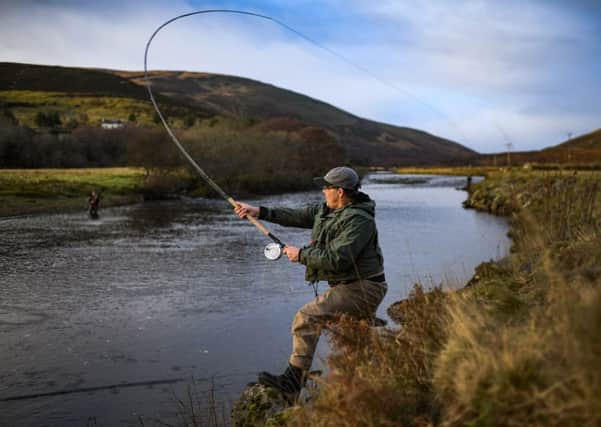Call for urgent action to save wild salmon as catch hits record low


Official figures from the Scottish Government, due to be released today, are expected to show the number of fish landed in 2018 fell below 40,000 for the first time since records began in 1952.
This is a dramatic drop from a high of 110,496 salmon caught in 2010 to the previous all-time low of 49,444 in 2017.
Advertisement
Hide AdAdvertisement
Hide AdAngling for wild fish brings in nearly £80 million a year to the Scottish economy and supports 4,300 full-time jobs.
Several factors are blamed for driving declines, including climate change, human activities and fish farming.
Experts say the latest report show the survival of Scotland’s wild salmon is at “crisis point” and are calling on ministers to make conservation of the ‘king of fish’ a national priority.
Dr Alan Wells is chief executive of Fisheries Management Scotland (FMS), the representative body for Scotland’s network of District Salmon Fishery Boards), the River Tweed Commission and Rivers and Fisheries Trusts.
“Salmon catches in Scotland have reached the lowest levels ever recorded,” he said.
“Figures for 2018, taken together with those of recent years, confirm this iconic species is now approaching crisis point.
“Some of the factors impacting on wild salmon stocks may be beyond human control. But Scotland’s government and regulatory authorities now have a historic opportunity to do everything in their power to safeguard the species in those areas where they can make a difference. Salmon conservation must become a national priority.”
He says regulators must place “renewed emphasis on the crucial importance of salmon conservation”.
Advertisement
Hide AdAdvertisement
Hide AdA recent Holyrood inquiry into the ecological impacts of aquaculture concluded that the fish farming sector must urgently address fish health and environmental challenges to be sustainable.
Conservationists have echoed the calls for protective action to be stepped up.
“Continuing low salmon numbers underline the vital importance of mitigating those man-made negative impacts, which are within our grasp to tackle, as a matter of urgency,” said Andrew Graham-Stewart, director of Salmon and Trout Conservation Scotland.
“The Scottish Government must now end years of prevarication and act promptly, in line with the recommendations of the Scottish Parliament’s Rural Economy Committee’s report, to give long overdue legislative protection to wild salmon from the impacts of salmon farming.”